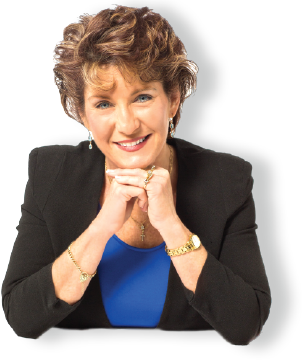Good read – Article asking Should I Use the ‘Naughty Corner’.
In a recent article for She’Said’ by Nicole-Carrington-Sima on which I consulted discussing use of the ‘Naughty Corner’. While I believe is the Naughty Corner should be renamed the Thinking Spot as we do at times need to separate the child from others or us if they have been aggressive or if we the parent have become extremely frustrate or angry at the child behaviour.
So Should I Use the Naughty Corner for my Child?
The article states I mentioned the laundry as a place to put the child. While this may be an option it depends on the age of the child and the setup of your property. When the child is young sending them to their room when naughty or angry can set an anchor for the child saying ‘the room is when I am bad’. The parent may then have problems having the child sleep comfortably in their room of an evening. This is something to be mindful of. By using an area the child does not often frequent, such as a corner, laundry (as long as supervised) or chair, you can keep an eye on them, hopefully silence them so both child and parent get their time out and regain their control. Parenting can be an incredibly thankless, confusing and just a plain tough job: you have to be an excellent role model, and incredibly loving and nurturing, plus a good disciplinarian, all at once! So, when it comes to toddler wrangling, does a naughty corner/naughty step/time out – call it what you will – actually work? Dealing with children’s behaviours are certainly challenging at times. The child can learn their ‘spot’ quickly and go there when in trouble. Rooms are usually filled with fun stuff and not always a punishment. Decide what works best in your home and use it as need be. The more regular you use the same spot as a consequence, the more of an anchor this becomes for the child. The child knows where they need to go and why, if they misbehave. Saves so many arguments and much conflict. Dr Karen Phillip (pictured), who’s one of Australia’s leading family therapists and parenting experts, told me the latest research and thinking on toddler discipline is less punitive and about shaming toddlers, which is bad for their burgeoning self-esteem. Instead, she advocates a “thinking spot” as opposed to the old-school naughty corner/naughty step/time out.  “I don’t like the term ‘naughty corner’ – I much prefer the ‘thinking spot’, because what you’re doing is removing the child that child to a safe place or spot for a stretch and connecting that behaviour,” Dr Phillip says. “It depends, of course, on what the child has done as to whether it warrants a thinking spot. If the child has been deliberately wilful and/or hurt their sibling, it may help to isolate them to a safe place so they can think about their behaviour. “The high emotion of the parent also needs to be considered, for when you have high emotion, rational thinking and logic goes out the window. This is where the thinking spot can also help.” Dr Phillip also recommends the laundry as a thinking-spot location – once you’ve made it kid-friendly and removed all dangerous objects. “Choose a corner or a room in which your child wouldn’t normally go,” she says, “Remove the child from comfort and don’t place them in their bedrooms and/or shut the door if they’re under seven.”
“I don’t like the term ‘naughty corner’ – I much prefer the ‘thinking spot’, because what you’re doing is removing the child that child to a safe place or spot for a stretch and connecting that behaviour,” Dr Phillip says. “It depends, of course, on what the child has done as to whether it warrants a thinking spot. If the child has been deliberately wilful and/or hurt their sibling, it may help to isolate them to a safe place so they can think about their behaviour. “The high emotion of the parent also needs to be considered, for when you have high emotion, rational thinking and logic goes out the window. This is where the thinking spot can also help.” Dr Phillip also recommends the laundry as a thinking-spot location – once you’ve made it kid-friendly and removed all dangerous objects. “Choose a corner or a room in which your child wouldn’t normally go,” she says, “Remove the child from comfort and don’t place them in their bedrooms and/or shut the door if they’re under seven.”  Another key message from Dr Phillip is the importance of teaching children about consequences through choices. “Toddlers don’t have good self-control, but are actually really clever,” she says. “It’s crucial to give a child a choice. Say: ‘I’m asking you not to do that’ when they display silly behaviour and give them a consequence of their action. “So, ‘I’m asking you to please eat your dinner so you grow healthy and strong’ – use a request, not an instruction or order. Then, tell them that if they don’t eat their dinner they will go to bed with a hungry tummy and not get to read a book they really like.” Of course, as any mother (or father) of toddlers knows – these little people just love to push the boundaries. “You’ve got to be really firm with toddlers,” Dr Phillip says. “But it’s imperative to make requests, not an instruction or order.” http://shesaid.com/au/toddler-
Another key message from Dr Phillip is the importance of teaching children about consequences through choices. “Toddlers don’t have good self-control, but are actually really clever,” she says. “It’s crucial to give a child a choice. Say: ‘I’m asking you not to do that’ when they display silly behaviour and give them a consequence of their action. “So, ‘I’m asking you to please eat your dinner so you grow healthy and strong’ – use a request, not an instruction or order. Then, tell them that if they don’t eat their dinner they will go to bed with a hungry tummy and not get to read a book they really like.” Of course, as any mother (or father) of toddlers knows – these little people just love to push the boundaries. “You’ve got to be really firm with toddlers,” Dr Phillip says. “But it’s imperative to make requests, not an instruction or order.” http://shesaid.com/au/toddler-






